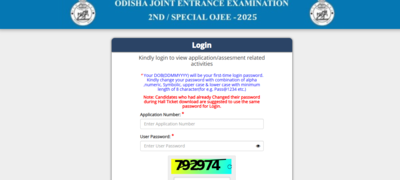Hiring processes today are anything but straightforward. With multiple interview stages, screening tasks, and the stress of answering repetitive questions in high-pressure environments, candidates often find themselves facing the frustration of unexpected ghosting. And now, there’s a new twist: Artificial Intelligence (AI). Companies are increasingly using AI to streamline hiring, from ATS systems scanning and sorting resumes to bots conducting one-way video interviews. If you’re not keeping pace with these advancements, you may find yourself left behind before you even realise it.If you’ve recently applied for a job and received a friendly email explaining that you can schedule an AI interview “at your own convenience”, then welcome to the new world of hiring, where bots hold the key to your future role. Now, you must first impress the algorithms before ever speaking to a colleague.Here’s an essential guide to navigating AI in the hiring process with confidence and ease:
Optimise your CV for ATS
These systems scan CVs looking for specific words and phrases that match what companies want. If your CV isn’t properly formatted for ATS, recruiters might never see it at all.Standard formatting works best. Use familiar headings like “Work experience,” “Education,” and “Skills” so the system can find what it’s looking for easily. Match the language used in job adverts. When companies mention specific technical skills, qualifications, or job titles, include those same terms in your CV where relevant.Keep formatting simple. These systems often struggle with images, tables, and fancy fonts. Plain formatting gives you the best chance of being read correctly. Bullet points help your information stand out and are easier for systems to process.
Customise your CV for each application
Generic CVs don’t work well anymore. Each application needs a tailored approach, particularly when dealing with automated systems.Study each job description carefully. Look for the main responsibilities and required skills, then use those exact words in your CV where truthful. Focus on your most relevant experience for each role. This helps you pass both automated screening and human review.
Demonstrate your impact with specific examples
Modern systems are getting better at recognising not just technical skills but also personal qualities and achievements.Use numbers to show your results. Instead of saying you improved something, specify by how much – “boosted sales by 25%” or “cut processing time by two hours daily.” Show your people skills through examples. Describe situations where you worked in teams, solved problems, or led projects, as these qualities matter greatly to employers.
Get ready for automated interviews
Chatbots and AI interview platforms are becoming standard. These might ask pre-recorded questions or chat with you in real time.Practice answering typical questions about your background, skills, and interest in the role. Keep responses clear and focused. Stay upbeat and professional. These systems often analyse your tone and manner of speaking, even though you’re not talking to a person. Keep your answers consistent with your CV. The system might compare what you say with what you’ve written.
Handle video interviews effectively
Some AI hiring tools analyse video interviews, looking at both what you say and how you say it. Companies use these platforms to assess everything from facial expressions to voice patterns.Sit up straight and look at the camera. Your body language matters, even when being assessed by AI. Speak clearly without using filler words. These systems can detect “um,” “uh,” and similar speech patterns. Check your technology beforehand. Make sure your camera, microphone, and internet work properly before starting.
Keep up with new developments
AI technology changes quickly, and recruitment tools evolve constantly. Staying informed gives you an advantage.Research the specific tools companies use. Learning about different automated systems helps you understand what to expect. Follow recruitment technology news. Knowing about new trends helps you prepare for changes in hiring practices.
Make your online presence work for you
Automated systems don’t just look at CVs. Your professional social media profiles and other online presence can also influence your application.Make your professional profile match your CV. Use the same keywords, job titles, and experience descriptions. Gather recommendations and endorsements. These add credibility that both AI systems and human recruiters value. Share industry-relevant content. Posting articles, commenting thoughtfully, and engaging with professional content can help you stand out to both recruiters and automated systems.
Moving forward in an AI-driven market
Artificial intelligence is reshaping how companies find and hire people, but job seekers who understand these changes can turn them to their advantage. By learning how ATS and chatbots work and adapting your CV, interview approach, and online profiles accordingly, you can greatly improve your chances of getting hired. The key is staying flexible and continuously refining your strategy as technology advances.






